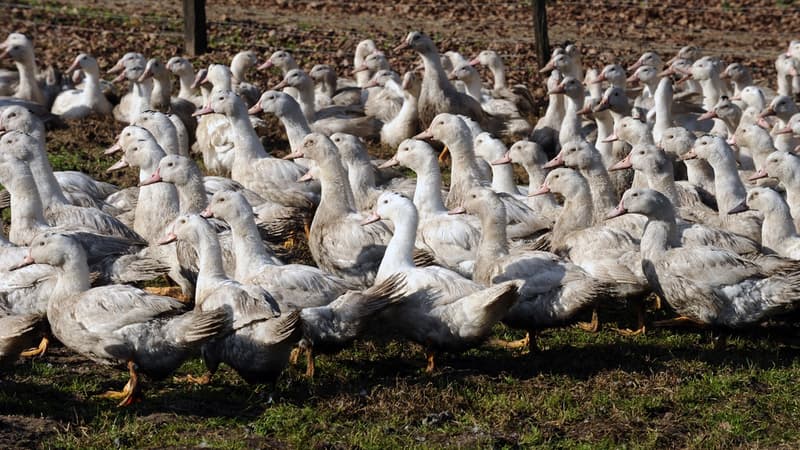The outbreak of avian flu in the southwest after a month and a half of calm is “unexpected and incomprehensible,” the foie gras interprofessional declared this Friday, given an increase in outbreaks at a time of year considered less risky.
Marie-Pierre Pé, general director of the interprofessional foie gras (Cifog), even speaks of a “surprise effect” when France lowered the risk level of bird flu from “high” to “moderate at the end of April”. “Since May 4, 21 outbreaks have been identified in breeding, mainly ducks, including 17 in the Gers and 4 in the Landes,” the Ministry of Agriculture reported this Friday in a press release. The last case in breeding dates from March 14. Each time, the poultry is slaughtered.
“General Dismay”
The authorities have also decided to preemptively cull waterfowl within a 10 km radius around the new outbreaks “to reduce the density and thus limit the spread between farms,” the ministry specified. The movement of poultry is prohibited within this perimeter. The projections will be “regular” in an extended perimeter (up to 20 km from the source). It will also be forbidden to welcome new ducks in this perimeter.
“It is the general consternation”, reacted Sylvie Colas, representative of the Peasant Confederation of the Gers. “We’ve never had bird flu in May, it’s usually winter,” she lamented. “The farms are full. With the bad year 2022, duck producers want to stock up”.
“Discouragement” of the producers
In addition to the measures taken by the State, Cifog has decreed the cessation of all movement of animals in the Landes, Pyrénées-Atlantiques, Gers and Hautes-Pyrénées, “at least until Wednesday”, said Marie-Pierre Pe. Or no entry of ducklings to the farms, no force feeding and cessation of flows with other departments.
The director of Cifog welcomes the “response” of the State and professionals, now experienced in these situations, but nevertheless underlines the “discouragement”, “particularly of certain producers in the Gers, in a basin already affected in December”. He evokes a “probable risk” of contamination through wild birds.
In its monthly report, the European health agency Efsa reported on Friday a decrease in the number of breeding outbreaks in March and April in Europe, but stressed that the gulls were still “very affected by the virus.” During this 2022-23 epizootic, six million poultry were culled in France according to the Ministry of Agriculture, following the slaughter of 22 million poultry in 2021-2022.
Source: BFM TV


